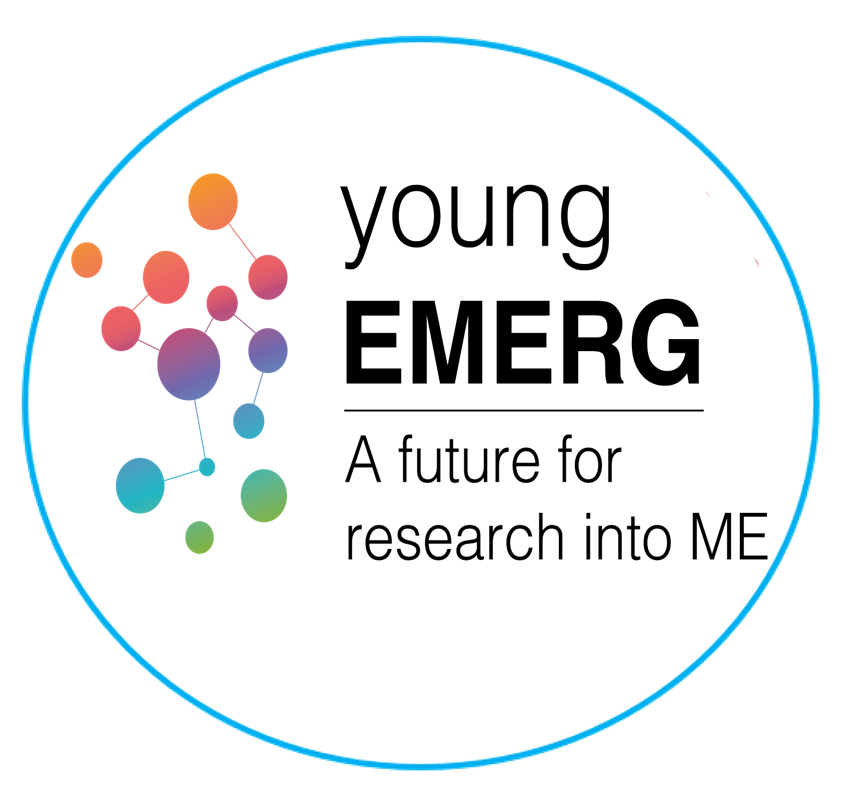Young EMERG - About Us
European ME Research Group Early Career Researchers
The European ME Research Group (EMERG) is a network of European
ME researchers who formed to collaborate and share knowledge
in research into myalgic encephalomyeltis (ME) and establish high quality, coordinated and sustained biomedical
research into the disease.
In order to build capacity and encourage early career researchers to consider making a career of research into ME
the group has created Young EMERG - European ME Research Group Early Career Researchers.
The ECR group brings together the new wave of researchers
to form a European support base which can facilitate collaboration with early career investigators in other continents.

Young EMERG
An Early Career Researcher is defined an individual who is within a few years of the award of their PhD or equivalent professional training, or their first academic appointment.
Young EMERG is the Young or Early Career ME Researcher network formed with the European ME Research Group (EMERG) and is set up to support and encourage early career researchers in Europe to enter or pursue a career in research into myalgic encephalomyelitis (ME).
The network provides a single European early career researcher forum for those involved in, or interested in, developing a career in research into ME. A network where members can come together to discuss life as an early career researcher, where ideas can be generated and shared, and where collaboration can be developed to allow opportunities for those young or early career researchers who are already involved in biomedical research into ME, or involved in another research area which may be of relevance to understanding ME.
By collaborating across Europe we can harness the best talents from the best institutions who are intent on working together.
This will assist in building the capacity of research resources within Europe that is necessary for
major discovery about this disease to take place.
Importantly, it allows the continuation of research and creates foundations for making progress in the
building of a base of European fundamental research into ME.
The Young EMERG Committee
The current Young EMERG executive committee is made up of the following members: -
Dr Katharine Seton, PhD
Chair
Quadram Institute, Norwich Research Park, UK
Donia Jamal Ramadan, MSc
Engagement Officer
Oslo University Hospital, Norway
Rik Haagmans, MSc
Secretary
Quadram Institute, Norwich Research Park, UK
Johanna Rohrhofer, MSc
Associate
Medical University of Vienna, Austria
José Andrés Espejo Oltra, MSc
Public Outreach Officer
Max Delbrück Center for Molecular Medicine, Berlin, Germany
Regina Torok
Patient Liaison Officer
King’s College London, UK
Regina is a Master’s student at King’s College London studying Neuroscience, and writing her dissertation on the role of joint hypermobility in the brain’s response to inflammation in ME/CFS and fibromyalgia, under the supervision of Dr Jessica Eccles at the Brighton and Sussex Medical School. She is using functional neuroimaging to investigate whether hypermobility influences the changes in the brain’s functional connectivity in response to an inflammatory challenge (typhoid vaccination) and whether these brain connectivity changes could be related to symptoms of ME/CFS and fibromyalgia. She is also a Long COVID patient, who developed dysautonomia, POTS and MCAS following a mild infection in March 2020, which led to a passion for patient advocacy and commitment to fostering an inclusive research environment for patients with ME/CFS and Long COVID.
Regina has also been involved in launching a study in collaboration with Dr Jessica Eccles, her colleagues, and independent researchers in the US to investigate whether hypermobility may play a role in the development of Long COVID. Regina is convinced that patient involvement in research will be crucial to swiftly discovering treatments for ME/CFS and associated conditions.
